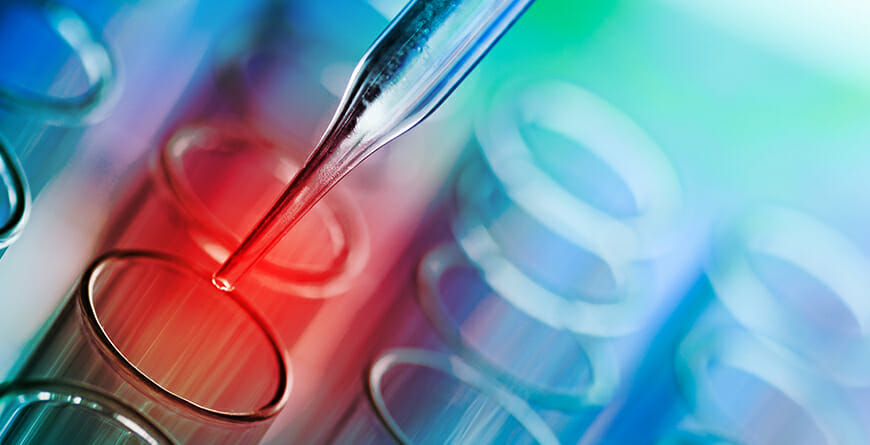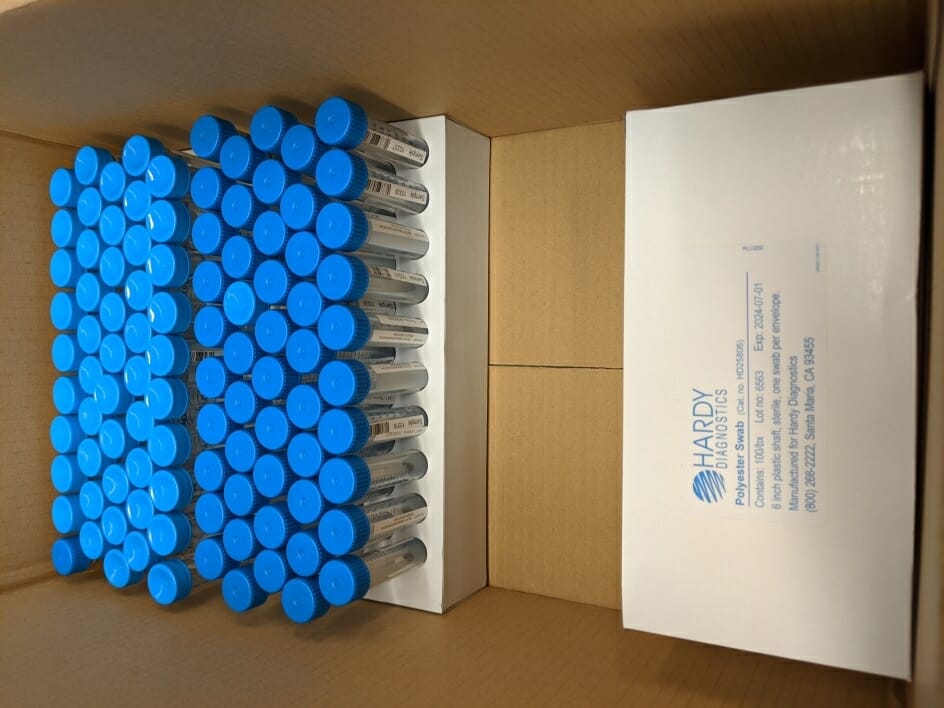
A $2 million donation in emergency grants from the Virginia G. Piper Charitable Trust will vastly increase efforts now underway at Arizona State University to coordinate preparedness responses to the coronavirus pandemic.
The grants will support the university’s work in three areas:
• Testing of critical workforce including health care workers, first responders and infrastructure personnel.
• Assembling of nose- and throat-swab test kits in short supply for health care providers.
• Manufacturing of personal protective equipment including face shields through its 3D printing rapid-response services.
“Now is the time for those who can — individuals and public- and private-sector organizations — to step in quickly and support our nonprofits,” said Mary Jane Rynd, president and CEO of Virginia G. Piper Charitable Trust. “They are serving on the frontlines and are essential to our economic vitality.”
“The university is moving forward,” ASU President Michael M. Crow said, “and we have mobilized our research efforts in every way that we possibly can to serve our students and the Arizona community, through thick and thin here, to ensure their health, safety and continued success in response to the COVID-19 pandemic. We will all get through this together.”
Scaling up
ASU’s Biodesign Institute will utilize Piper Trust support to increase its capacity for automated, rapid diagnostic testing to mitigate the viral spread and potential reoccurrence of COVID-19.
“ASU is in a unique position to scale up our testing efforts to support round-the-clock testing and analyze hundreds of samples daily,” said Joshua LaBaer, director of ASU’s Biodesign Institute, who also serves as the Piper Chair in Personalized Medicine and leader of the Biodesign Virginia G. Piper Center for Personalized Diagnostics. “We have an urgent window right now to make an impact through testing and save lives in our community.”
As capacity for COVID-19 testing became problematic and plagued by shortages in the supply chain for testing kits and reagents, LaBaer’s team of 100-plus core scientists, staff and students sprang into action.
In just two weeks, the Biodesign Institute shifted its research capabilities to support a clinically approved and certified COVID-19 testing center, a COVID-19 swab test kit production facility capable of assembling 2,000 kits per day, production of personal protective equipment such as face shields, and supporting drive-through COVID-19 testing currently underway at area hospitals.
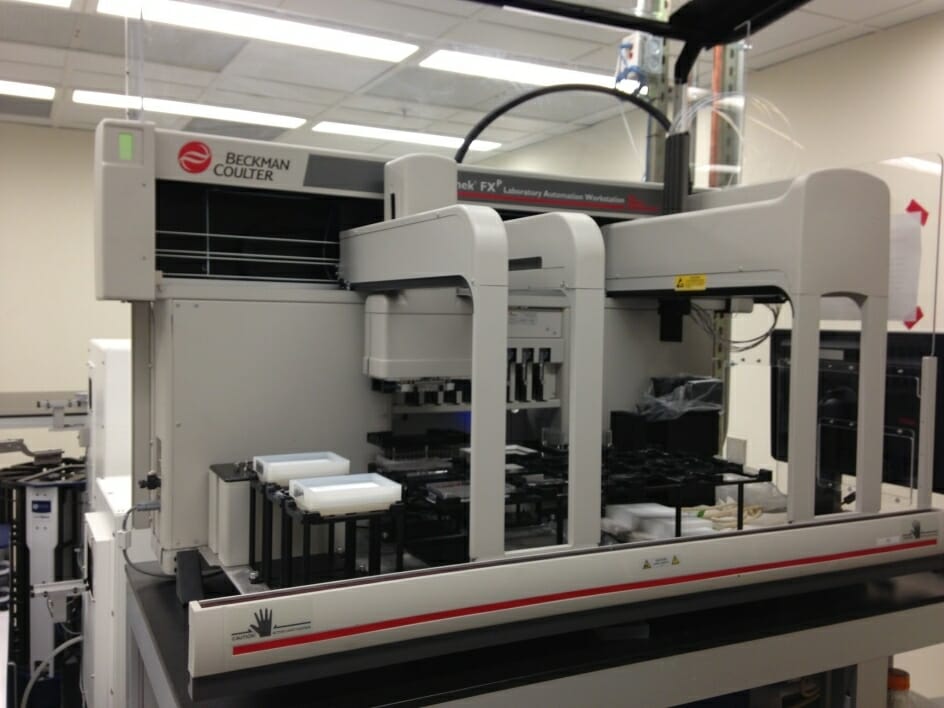
This rapid shift was made possible by a Department of Defense $40 million investment in ASU back in 2009 as the lead contractor on a multi-year project aimed at helping to triage a population in the event of a nuclear emergency. The test developed by ASU could tell how much radiation a person was exposed to after a single explosive event.
"This particular tool was specifically for measuring the absorbed dose of gamma radiation exposure to civilians if a nuclear bomb were detonated in a city or populated area," LaBaer said. “Now, we just swapped out the genes for radiation detection for the coronavirus ones to do the test. We have all the automation and robots in place, and everything’s ready to go now.”
The Biodesign Institute’s high throughput platform will run 400 samples a day at first, gathered from visitors experiencing COVID-19 symptoms who have been seen at various Valley-wide health care providers or their drive-in sites. The ASU team’s robotic system has the ability to run 1,000 samples a day at full capacity, greatly increasing Arizona’s COVID-19 local testing capabilities.
Blur of activity
The Piper support will further catalyze the flurry of activity within the ASU research community to help blunt the impact of the coronavirus pandemic. In Arizona, state health officials estimate that COVID-19 cases will peak in mid- to late April, with hospitalizations likely to quickly follow in May.
Additional ASU research efforts underway include:
• Just a week after the first U.S. case of the new coronavirus was confirmed in Washington state, ASU Biodesign Institute and School of Life Sciences researchers Brenda Hogue, Bert Jacobs and Qiang “Shawn” Chen began efforts toward developing a coronavirus vaccine.
• In addition to COVID-19 testing, LaBaer’s Biodesign Institute team is also in the early stages of developing a simple blood test against all seven strains of coronavirus, including the new SARS-CoV-2 pandemic. This will aid vaccine development efforts, help detect asymptomatic carriers and help understand why some people get very sick and other individuals have no symptoms from a COVID-19 infection.
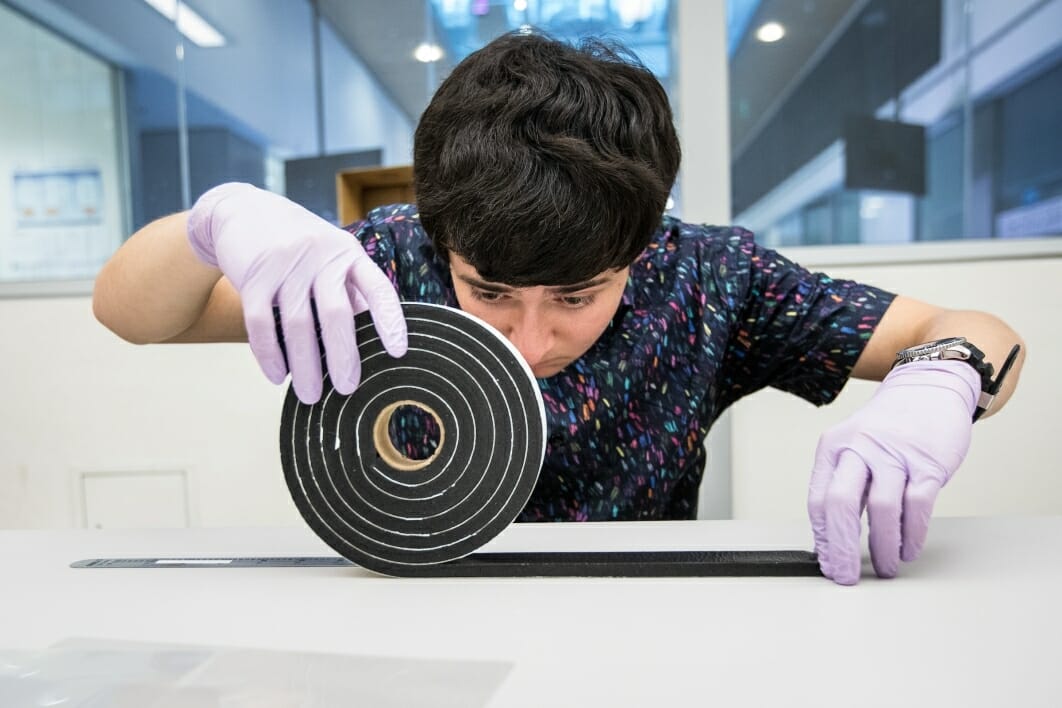
• ASU scientists Hogue and Ira A. Fulton Schools of Engineering Regents Professor Paul Westerhoff are developing ways to use heat treatment and UV light to find ways that critical supplies of personal protective equipment can be rapidly sterilized and reused for medical personnel and first responders.
• ASU’s modeling and epidemiological team, led by pandemic modeler Tim Lant, in collaboration with University of Arizona epidemiologist Joe Gerald, are working daily with the Arizona Department of Health Services to better predict and understand the full impact of COVID-19 positive cases on Arizona’s population. ASU College of Health Solutions and Fulton Schools of Engineering biomedical informatics Professor George Runger and Watts College of Public Service and Community Solutions Dean Jonathan Koppell are leading an AI-based modeling approach to train on Medicare and Medicaid data to identify and set up a response for the state’s most vulnerable individuals.
• Nadya Bliss, executive director of ASU’s Global Security Initiative, is looking at ways to combat coronavirus misinformation that is causing undue fear and panic in the public. Her team is also working on ways to protect the public from opportunistic hackers, agents or scammers that propagate disinformation or want to steal personal information.
Community first
All of ASU’s research efforts are being coordinated with daily updates from meetings with Arizona health care providers in association with ASU’s clinical partnerships team, led by Sue Pepin, managing director, Health and Clinical Partnerships, and Tamara Deuser, associate vice president and chief operating officer, Knowledge Enterprise operations. Todd Hardy, ASU managing director of Innovation Zones; Mark Naufel, director of strategic partnerships; and Tyler Smith, associate director of the Luminosity Lab, are leading ASU’s 3D printing and manufacturing network to coordinate the hospital needs with the network’s ability to respond in real time.
ASU will also be reaching out to several municipalities, first-responder networks and the Arizona business community to help with COVID-19 preparedness in the days ahead.
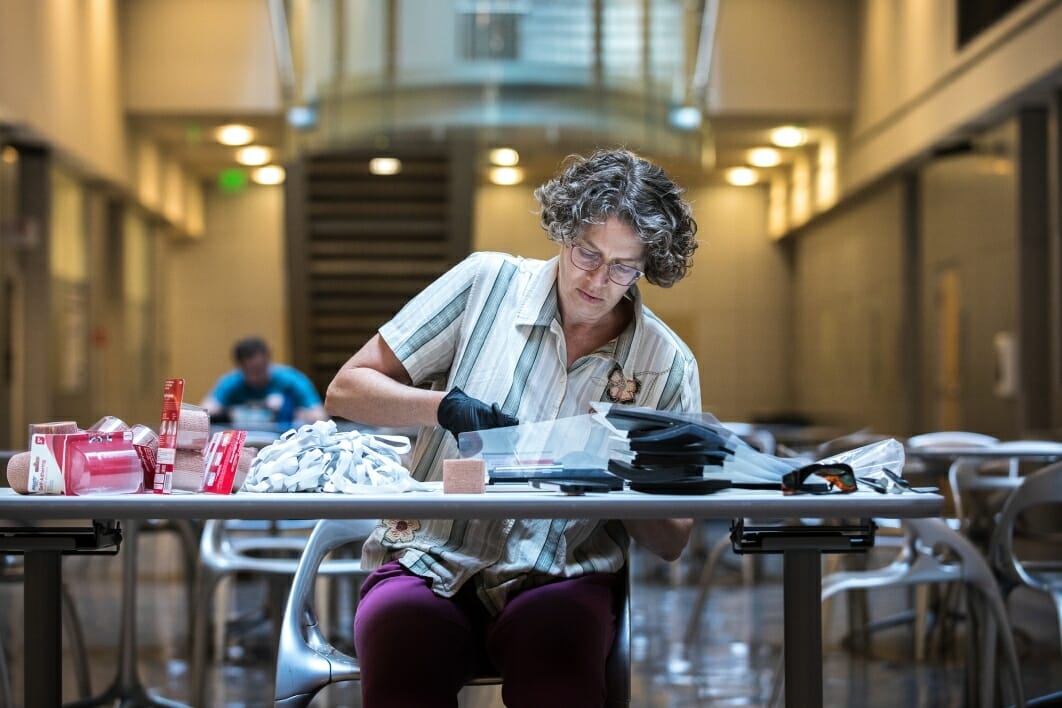
"I am very proud of our faculty, staff, and students who are demonstrating the ability, capacity and commitment to take on this immense challenge — searching for innovative solutions to address the COVID-19 crisis," said Sethuraman "Panch" Panchanathan, executive vice president of ASU’s Knowledge Enterprise and ASU’s chief research and innovation officer. “At ASU’s Knowledge Enterprise, we have been working tirelessly, and doing our best to replace community fears and anxiety with hope and a sense of unity to get through this crisis together.”
It’s a message LaBaer echoes every day to his team of hundreds of scientists, graduate students, technicians and freshly recruited volunteers as they deal with doing real-time, seat-of-the-pants science in a highly fluid COVID-19 pandemic environment.
“Let’s go save some lives.”
